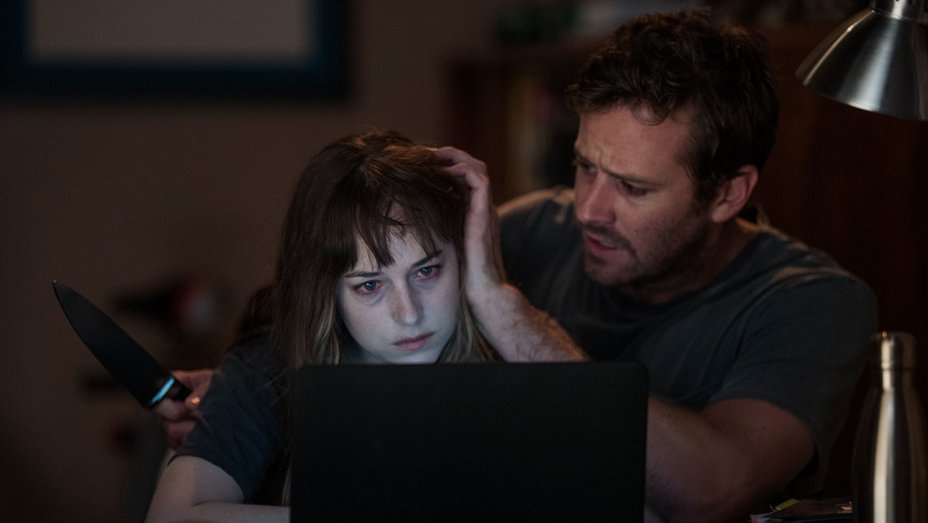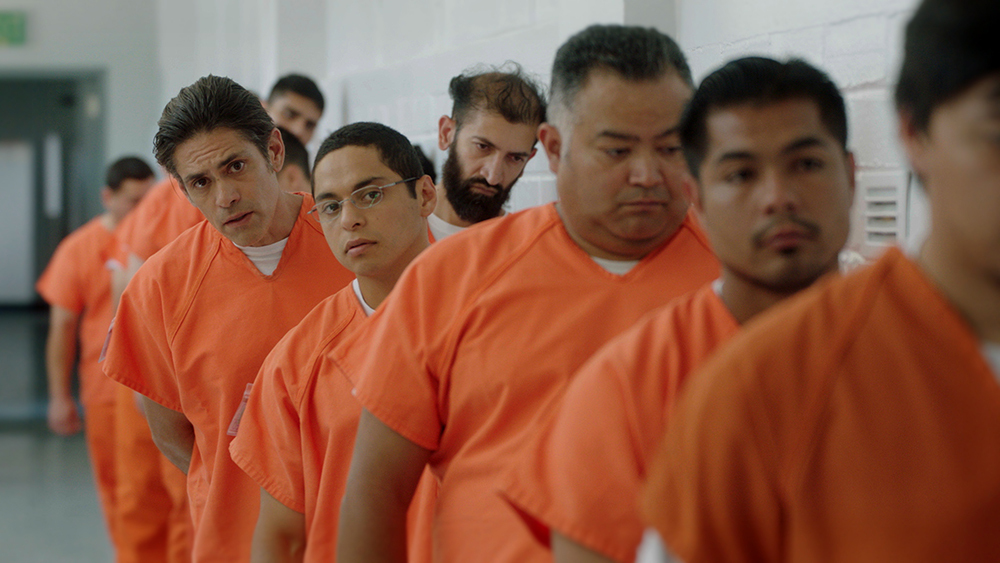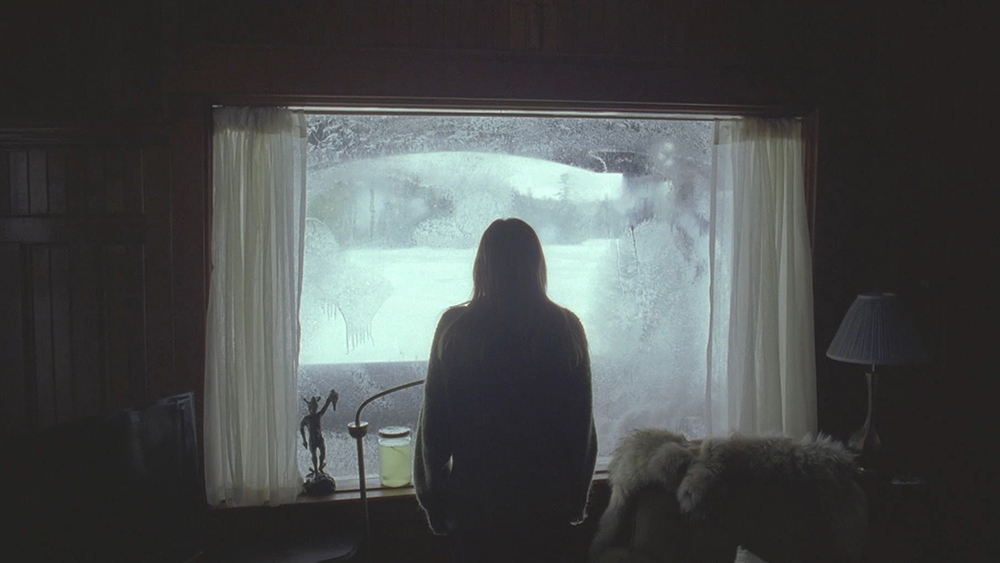Read also:
How to Watch FX Live Without CableHow To Watch AMC Without CableHow to Watch ABC Without CableHow to Watch Paramount Network Without CableJennifer Kent and Babak Anvari return with chillers of varying quality, an immigration doc suffers from overthinking, and The Lodge serves up effective slow-burn horror in Day 3 of our Sundance coverage.
If Tuesday was a day of hot messes, Wednesday was a day of hot stresses. Yes, half of my day 3 Sundance movies took me by the back of my hair and dragged me across the floor. But hey, if that sort rush is what it takes to keep me going all day, I’ll take it. Just as long as I don’t wipe out on some black ice again.
First up was The Nightingale, the latest from Jennifer Kent. The Australian writer/director blew up in the cinemasphere at Sundance five years ago with The Babadook, and while that meditation on trauma worked as a straightforward head-trip, it also provided for quite a bit of discussion. (After all, I’m still Baba-shook that her boogeyman creation became a queer icon.) The Nightingale is about as successful as her previous film but much more complex. A genre portmanteau with spaghetti western stoicism cracking at the seams with unflinching horror, it’s one of the more unforgiving movies in recent memory, and it’s definitely the most affecting I’ve seen so far at the festival this year.
The movie doesn’t ease you into its brutality either. Set in the wilderness of 1825 Tasmania, the film follows Clare (Aisling Franciosi), an Irish convict who, towards the beginning of the picture, is repeatedly raped by Lieutenant Hawkes (Sam Claflin). His crew of colonists assaults her and attacks her family, and rather than escape, she runs off to make sure they pay their dues. Soon, she comes across an aboriginal named Billy (Baaykali Ganambarr). The colonists have also attacked him: they’ve stripped his culture, exploited his people, and run his land barren. The two quickly end up in a cat-and-mouse game with their mutual attacker, but they aren’t really bent on revenge. They’re out to avenge those Hawkes has ruined, and to stop it from happening again.
There’s something deeply beautiful about the central dynamic. It’s inspiring but silent, and that’s where The Nightingale succeeds the most. Kent has crafted a truly shocking and often beautiful film thanks to its silence. There’s no score, no cheap tricks, and an overall brilliant use of point-of-view to align audiences with whoever is traditionally seen as the most passive during any given scene. But it’s then that Kent’s minor stroke of genius comes into play.
She doesn’t just place viewers into the depravity in how she shoots and dissociates from the violence and assault. She also confronts each viewer to ask themselves just who they see as passive and why. From race, age, nationality, culture, gender, and the trauma that blends us together, there’s a sick serenity to The Nightingale at its heart, sinking into a sea of grey areas only to burst out the other end. Kent’s only major flaw here is her pacing at times, namely in the middle of the film. It dips in its occasional thematic and tonal repetition, and some of its comic relief simply doesn’t work.

This Kent-bent suspense didn’t carry onto the next movie, though, with Babak Anvari’s Wounds marking an alarming drop for his filmography. Back in 2016, Anvari premiered Under the Shadow, a supernatural horror film about a mother and child in war-torn Tehran. It was a modest success that had wider implications, an actual sense of ambition. His follow-up is far from that. Our protagonist is Will, a one-note alcoholic and bartender named who lives with his girlfriend, Carrie (a woefully underused Dakota Johnson). His regular consumers include the burly, Confederate-flag owning Eric (Brad William Henke); a dweeb named Jeffrey (Karl Glusman); and Jeffrey’s girlfriend, Alicia (Zazie Beetz), the latter of whom Will is having an affair with.
The film opens with a drunken brawl that graphically wounds Eric and sends a group of college kids running. As it happens, those kids leave a phone. Will nabs it (of course he does!) and comes across some cryptic messages, which lead to some mumbo jumbo hallucinations. It’s a kind of Ringu/Candyman pastiche, really. There are lots of bugs, lots of tepid body horror, and a bunch of mythology that’s too undercooked and divorced from real-world implications to have an effect.
This, of course, is a problem. Wounds could have been a fascinating look at a man’s fear of being emasculated, but without enough of a human core to latch onto, it never comes close to transcending its starting point. Could this idea have worked? Sure—and it wouldn’t have to be “traditionally scary” to succeed—but that would involve some sort of narrative or thematic momentum. The characters here are just so one-dimensional and removed from the autocannibalistic archetypes they could have embodied. This would-be slow-burn horror oversimplifies its dynamics instead, wastes its cast, and stretches its beats to the point where there are no real highs or lows. It just rolls down the street in neutral, running on the fumes of cheap jump scares. But hey, at least the score and practical effects are decent.

Given Wounds’s flaws, it was bizarre to follow it up with a film that had the opposite issues. As part documentary and part scripted film, Cristina Ibarra and Alex Rivera’s The Infiltrators is the rare film that suffers from overthinking itself. It’s an inherently interesting story, though: we follow the National Immigrant Youth Alliance, a group of teens who actually try to get put into a Florida detention center in order to help undocumented immigrants get out. It’s half reenactments and half archive footage with a little bit of talking heads thrown in. That roughly comes out to 105 percent of a movie, which is apparent onscreen. This is a pretty crowded movie, and it often lacks focus.
The reenactment scenes are easily the biggest offender. No, it isn’t because blending scripted and unscripted content can’t work—other films have debunked that. It’s because they’re flat and seem to avoid luminance like the plague. The outdoor scenes are drenched in sickly sunshine; the indoor scenes are at the mercy of whatever saturated object is in frame. Each scripted scene feels like a rickety bridge to get us to the next documentary sequence. Those sequences, however, are lively and brisk. They also benefit from the kids’ charisma, whose determination and ingenuity are nothing short of infectious. The Infiltrators balances pluck and pith from time to time, but it’s too bad it can’t hold onto more than one thing at once.

Speaking of a handful of things in one movie, my last film of the day (and first midnight movie of the festival) was The Lodge. Severin Fiala and Veronika Franz’s follow up to the deliciously twisted Goodnight Mommy takes several of the same themes—namely the perceived perversion of the mother figure—and tones down the gnarliness so it can really harp on the dread. This is slow-burn horror largely done right, and in that regard, it was a nice chaser after Wounds. It works more on a technical plane than it does thematically, but that isn’t to say it fails at the latter.
In the beginning of the film, we learn that family man Richard (Richard Armitage) is finalizing his divorce from Laura (Alicia Silverstone), the mother of his two kids. Those kids are Aidan and Mia (Jaeden Lieberher and Lia McHugh). Now they’ve got a new mother figure in the form of Grace (Riley Keough), but something about their cold shoulders go beyond resentment towards her and into outright bitterness. But who can blame them? They’re kids. It’s an awkward situation. It isn’t really anyone’s fault. That doesn’t mean Richard is fine with it. He’s forcing the kids to spend some quality Christmas time with Grace in a rural Massachusetts cabin, and maybe being stuck together in a house will tidy things up.
Or maybe not.
The Lodge wears its literacy on its sleeve like badges of honor, so much so that it can be outright distracting at points. It would be obvious to compare the film to The Shining, but it’d also be accurate. (After all, this movie is so indebted to the Kubrick film that it even has some of the same beats.) However, it has more of a thematic dissonance from its audience than the aforementioned classic. Religious iconography, theistic guilt, and spiritual loneliness are all major themes, and the final product has shadows of Hiroshi Teshigahara’s Woman In the Dunes. The script does a decent job at connecting the dots, but at the end of the day, the biggest help here is Thimios Bakatakis’s (The Lobster, The Killing of a Sacred Deer) cinematography. He says so much with soft focus and slow zooms, almost as much as Keough does with yet another strong performance.
It’s probably a good thing that those two say the most. They generally overshadow the script’s loudest attempts at emulating other films. The Lodge also has a bit of an issue with deciding how vague it wants to be, and its most blatant exposition takes away some of the wonder. Yet there’s also a nutty streak to be found here. Some may find issues with just where the film goes, but I’d be lying if I said I wasn’t invested.